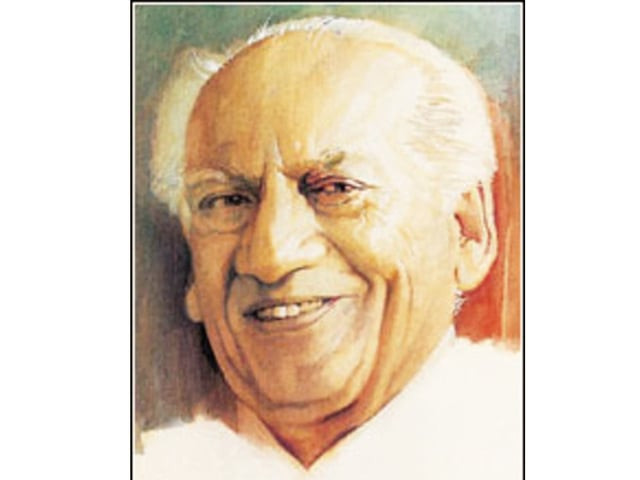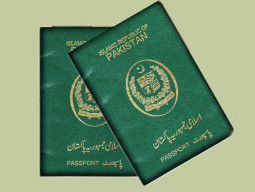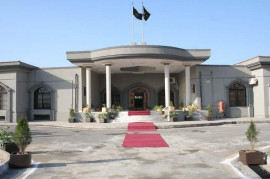
The books included Two Loves – Letters from Jail by Faiz; Payam-i-Mashriq by Iqbal with translation by Faiz; Faiz Banaam Iftikhar Arif by Iftikhar Ari; Jinhain Jurm-i-Ishq Pe Naaz Tha by Salahuddin Haider; Sheeshon Ka Maseeha: Faiz by Ashfaq Hussain and Mauzoo-i-Sukhan by Humair Hashmi.
Speaking at the occasion, the authors, compilers of some of the books said it was their tribute to Faiz in recognition of his contribution to the promotion of progressive literature in the country.
Akhtar said Faiz was at the same time a very dignified and a very polite person. He quoted one of his verses Hum Sehal Talab Kon Say Farhad Thay Lakin... Ab Shehar Mein Teray Koi Hum Sa Bhi Khan Hai to make his point.
He compared Faiz’s poetry to moonlight. “Like moonlight beatifies the objects of nature as diverse as woods, desert and sea amid the dark of night, Faiz sahib’s poetry glorifies the events it narrates,” he said.
He said Faiz’s poems describing the violence that took place during Partition had a universal so that they could equally refer to similar acts of barbarity at other places in the world.
Faiz’s daughter Salima Hashmi briefed the audience about the compilation of the book Two Loves – Letters from Jail. She said while going through old documents during the time the family was setting up Faiz Ghar, she found several worn out papers in a bag. She said she recognised Faiz’s handwriting on the papers and found out that they were letters written by him to her mother, Alys, from jail. She said her mother had belived that she had lost them. She said she took the pages to one of her friends, a conservationist, and after some effort they were able to read through the entire text of 25 letters, on which the book was based. She said the book contained scanned images of the original letters and photographs of the jail cell where Faiz had been confined.
Speaking about his book launched during Friday’s ceremony, Iftikhar Arif said he had included 42 of the 46 letters exchanged between him and Faiz. He said the four letters he had left out were very personal.
He said it was to Faiz’s credit that the first-ever conference of progressive writers was organised in India in 1936. “Faiz’s work is a reflection of his love for all of humanity,” he said.
Dr Arifa Syeda said Faiz’s take on life could be understood through his response to Bano Qudsia’s questions during a gathering.
She said when Bano Qudsia asked Faiz about the easiest thing in life, he had responded, “to love”. To the question about the most difficult thing, she said, Faiz had replied “to be loved”.
Indian writer Obaid Siddiqui said after Iqbal and Manto, the largest number of books had been published on Faiz during the 20th century. He said many more scholars would interpret Faiz’s work in new ways in the coming days and his relevance to literature would keep increasing.
The event was attended by several renowned poets and writers including Zehra Nigah, Asghar Wajahat, Ashfaq Hussain and Aitizaz Ahsan.
Published in The Express Tribune, February 12th, 2011.


















COMMENTS
Comments are moderated and generally will be posted if they are on-topic and not abusive.
For more information, please see our Comments FAQ